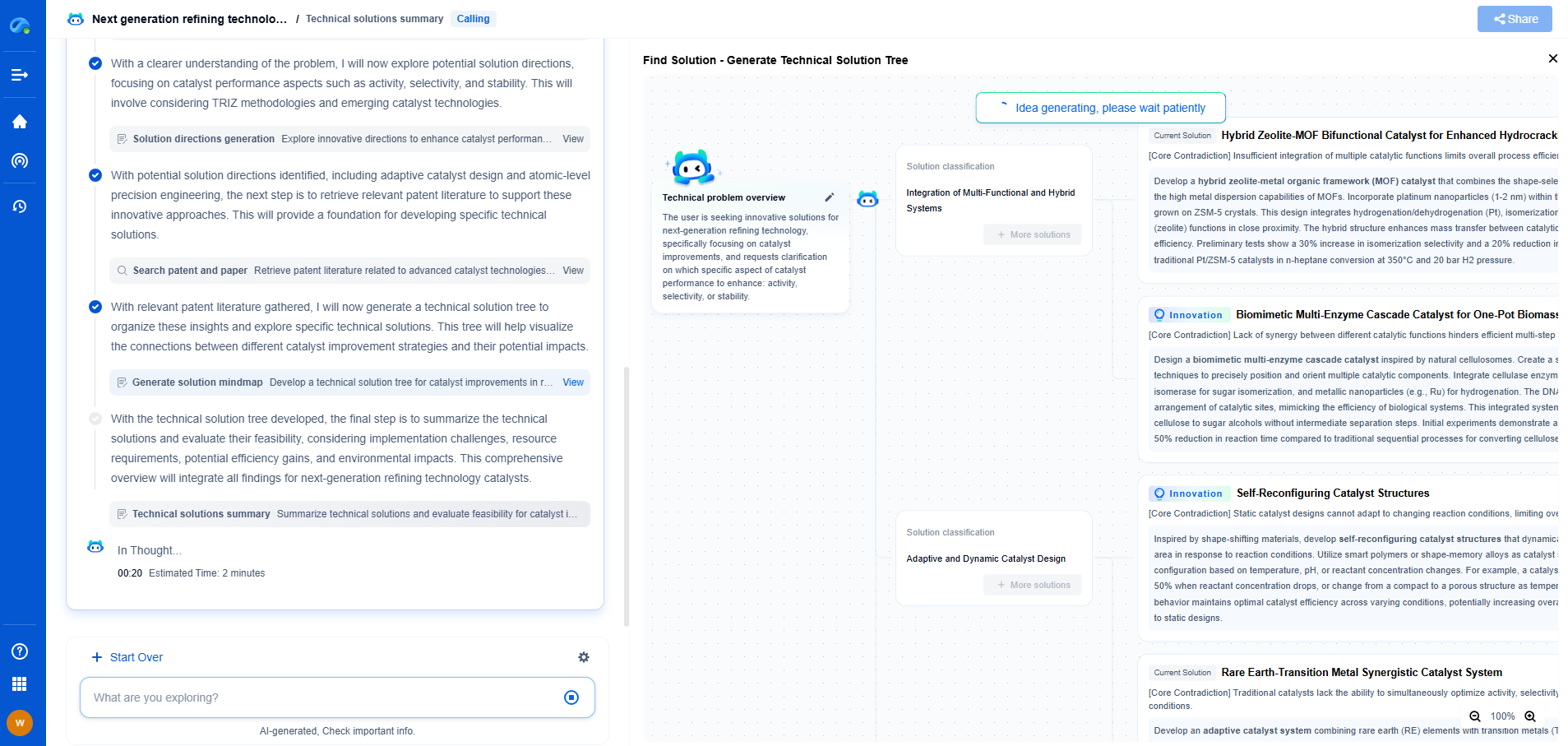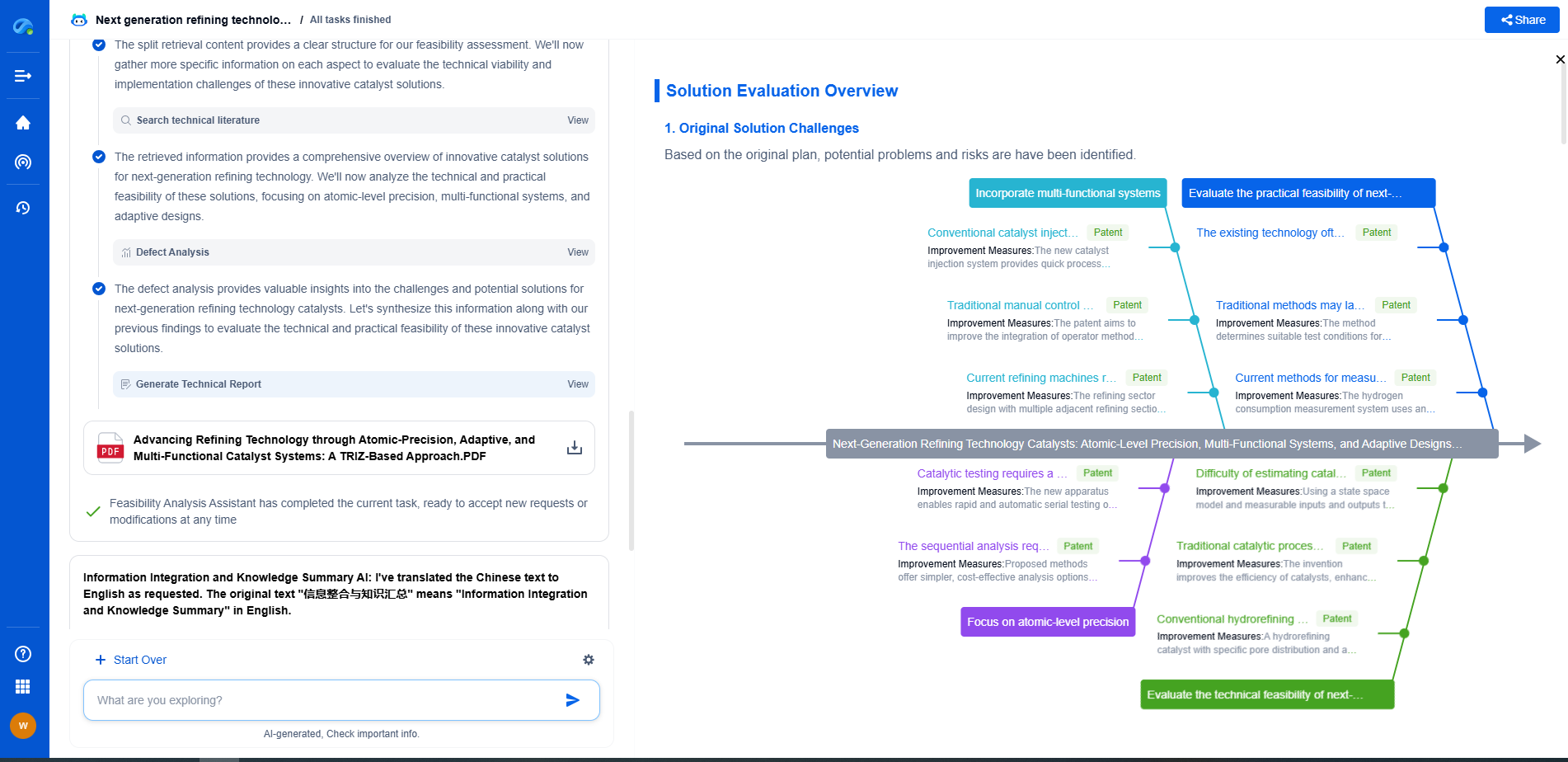Pharmaceutical Purification: Why Sterile Filtration is Non-Negotiable in Biologics
JUL 25, 2025 |
In the rapidly evolving world of pharmaceuticals, ensuring the purity of products is of paramount importance. This is especially true in the field of biologics, where the products are often derived from living organisms and are highly susceptible to contamination. The process of purification is critical in maintaining the safety and efficacy of these drugs. Among the various purification techniques, sterile filtration stands out as a non-negotiable step in the production of biologics.
The Unique Challenges of Biologics
Biologics differ significantly from traditional pharmaceuticals. While small-molecule drugs are chemically synthesized, biologics are typically large, complex molecules produced through biotechnology. These include monoclonal antibodies, vaccines, and recombinant proteins. The complexity of biologics poses unique challenges in manufacturing, particularly in ensuring product purity and preventing contamination.
Contaminants can enter the production process at various stages, including during cell culture, fermentation, or downstream processing. Even trace amounts of impurities can compromise the safety and effectiveness of biologics. Therefore, stringent purification processes are essential to remove contaminants and ensure that the final product meets regulatory standards.
Why Sterile Filtration is Essential
Sterile filtration is a critical step in the purification of biologics. It involves the removal of microorganisms and particulate matter from the product by passing it through a filter with a pore size of 0.2 micrometers or smaller. This technique is widely regarded as one of the most effective methods for ensuring sterility and purity in biologic products.
One of the primary reasons sterile filtration is non-negotiable is its ability to provide a physical barrier against contaminants. Unlike chemical sterilization methods, which can alter the structure of biologics, sterile filtration preserves the integrity of the product. This is crucial for maintaining the therapeutic efficacy of biologics, as even minor alterations in their structure can impact their function.
Ensuring Compliance with Regulatory Standards
Regulatory agencies, such as the FDA and EMA, have stringent requirements for the production of biologics. These regulations emphasize the need for robust purification processes to ensure product safety and efficacy. Sterile filtration is a key component of these regulatory frameworks, as it provides a high level of assurance that the product is free from contaminants.
In addition to meeting regulatory requirements, sterile filtration also helps manufacturers avoid costly recalls and potential harm to patients. Contaminated biologics can lead to severe adverse effects, undermining public trust in pharmaceutical companies and the healthcare system as a whole.
Advancements in Filtration Technology
The field of sterile filtration is continuously evolving, with advancements in filter materials and design enhancing the efficiency and reliability of the process. Modern filters are engineered to withstand high pressures and temperatures, ensuring consistent performance even in challenging conditions. These advancements enable manufacturers to achieve higher levels of purity without compromising on production speed or cost.
Furthermore, innovations in single-use filtration systems have streamlined the purification process. These systems reduce the risk of cross-contamination and minimize the need for extensive cleaning and validation, ultimately improving production efficiency.
Conclusion: A Non-Negotiable Safeguard
In conclusion, sterile filtration is an indispensable safeguard in the purification of biologics. Its ability to effectively remove contaminants while preserving the integrity of complex biological molecules makes it an essential component of pharmaceutical manufacturing. As the demand for biologics continues to grow, the importance of sterile filtration in ensuring the safety and efficacy of these life-saving therapies cannot be overstated. By maintaining rigorous purification standards, manufacturers can deliver high-quality biologics that meet the needs of patients and healthcare providers worldwide.
From next-generation membrane materials to high-efficiency separation processes for pharmaceuticals, water treatment, food processing, or energy systems, the filtration & separation industry is rapidly evolving with a surge in material innovation, microstructure design, and process optimization.
Patsnap Eureka, our intelligent AI assistant built for R&D professionals in high-tech sectors, empowers you with real-time expert-level analysis, technology roadmap exploration, and strategic mapping of core patents—all within a seamless, user-friendly interface.
Whether you're designing the next high-throughput filter, optimizing nanostructured surfaces, or exploring new separation media for emerging industries—Patsnap Eureka gives you AI-driven insights in seconds, helping you move from ideation to innovation with confidence.
🚀 Start your free trial today and experience how Eureka transforms filtration innovation—from reactive to predictive.
- R&D
- Intellectual Property
- Life Sciences
- Materials
- Tech Scout
- Unparalleled Data Quality
- Higher Quality Content
- 60% Fewer Hallucinations
Browse by: Latest US Patents, China's latest patents, Technical Efficacy Thesaurus, Application Domain, Technology Topic, Popular Technical Reports.
© 2025 PatSnap. All rights reserved.Legal|Privacy policy|Modern Slavery Act Transparency Statement|Sitemap|About US| Contact US: help@patsnap.com

